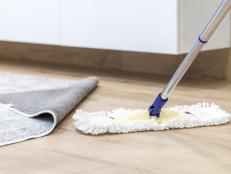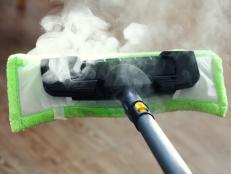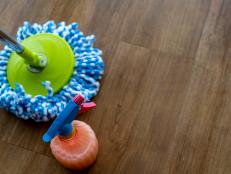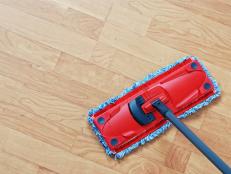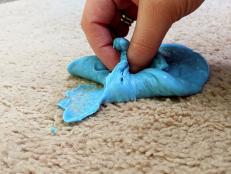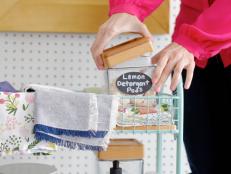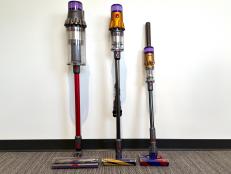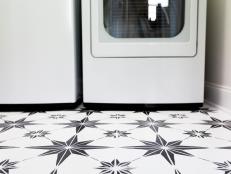Mopping Floors With Vinegar
Learn the best ways to embrace this simple ingredient in your floor cleaning routine.
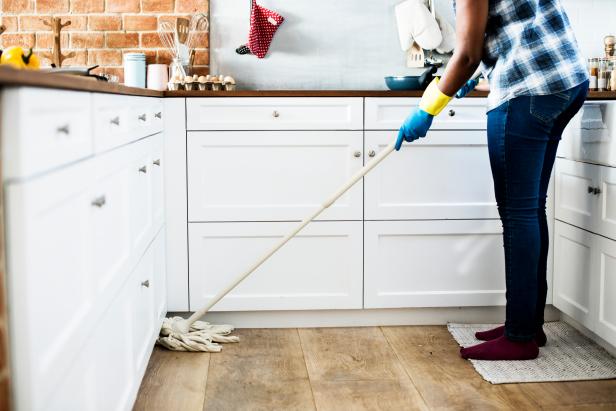
GettyImages/Rawpixel

Incorporating vinegar as an ingredient in your homemade floor cleansers is as easy as can be, which is why so many homeowners have taken to using it when it comes time to mop their floors. Distilled white vinegar is favored for its ability to clean germs on many surfaces in the home, and its success is due to its heightened acidity. However, the use of vinegar has its time and place, and it isn’t a perfect all-purpose cleaner for floors. So, before you put it to use, consider when it excels and what precautions you should take into account.
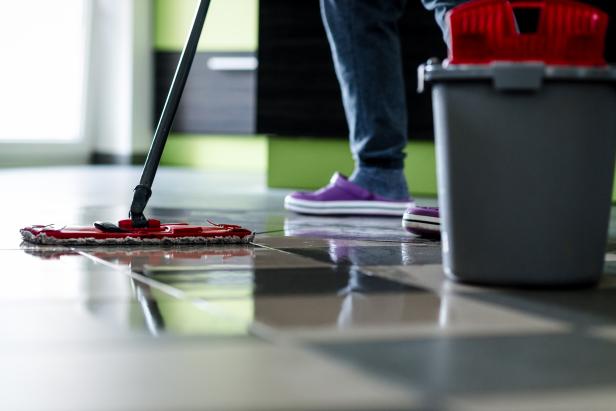
GettyImages/lovro77
For Porcelain and Linoleum
Vinegar is great for hard tile and solid surfaces. The more acidic it is, the more effective it is at being a disinfectant. It’s not necessary to dilute your vinegar before putting it to use on these select surfaces, though diluting it does have some benefits: It’s more gentle on grout and doesn’t smell quite so potent.
Some might imply that diluting a splash of white vinegar into water will boast the same potency and cleaning power, but don’t expect to get the full benefit from the cleaner if you’re running those tests in your at-home science lab. The more concentrated the solution, the better it’ll perform when you’re mopping porcelain and linoleum. Aim for 50/50 vinegar and water, or more vinegar and less water.
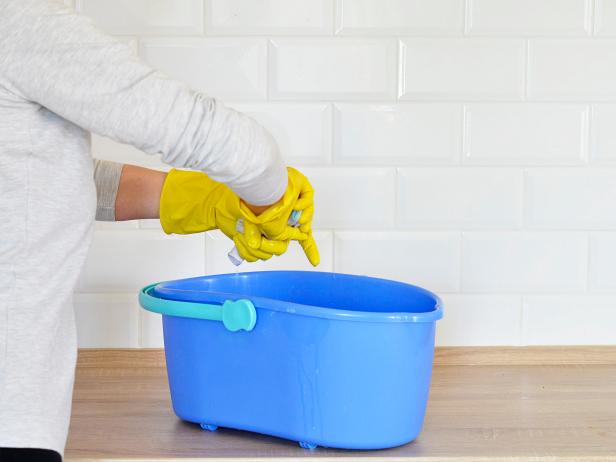
GettyImages/ela bracho
If it isn’t realistic to have a whole mopping bucket filled with undiluted white vinegar – and it isn’t – consider this vinegar mopping strategy instead:
Soak a cloth in a small bowl of distilled white vinegar, and once it has absorbed all of the vinegar, attach it to the base of a dry mop or “wet sweeper” type of product. If it doesn’t clip or pinch on, strap it in place with a couple of rubber bands. The soaked rag will serve as a wet mop, and it’ll effectively collect dirt on the ground while simultaneously distributing the vinegar across the floor to disinfect. Overall, you’ll use less vinegar than if you were dipping a mop into a bucket but will still be disinfecting at maximum effectiveness.
For Hardwoods, Ceramics and Stone
On wood flooring, ceramic tile and natural stone, it’s always best to use a more diluted concentration of vinegar (think: 1 cup of vinegar in 1 gallon of water). The acidic properties of pure distilled white vinegar are likely to do more harm than good on these surfaces and can also dull the polish or wax finishes.
You’re not going to be able to as assuredly disinfect these surfaces with vinegar because of the diluted concentration. Instead, be diligent about dry mopping, vacuuming and using surface-approved cleaners if you need spot treatment.
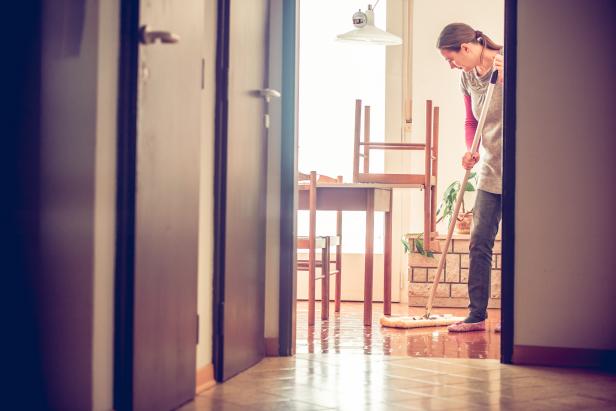
GettyImages/CasarsaGuru
What if You Don’t Like the Smell of Vinegar?
When you’re over the fact that your house smells like salt and vinegar potato chips (temporarily, but you might not be able to convince your spouse of that) you might find yourself looking for alternatives to vinegar. Keep in mind that you can add a few drops of essential oils such as lemon or lavender to your cleaning solution to cut back on the intensity of the vinegar scent.
You can also treat the cleaning solution ahead of time by soaking citrus peels, like orange, lemon and lime, into the vinegar cleaner to infuse different scents. Everyone’s tolerance is a little different when it comes to using vinegar as a cleaner, especially during seasons when it’s harder to ventilate any type of cleaning solution scent from a home.
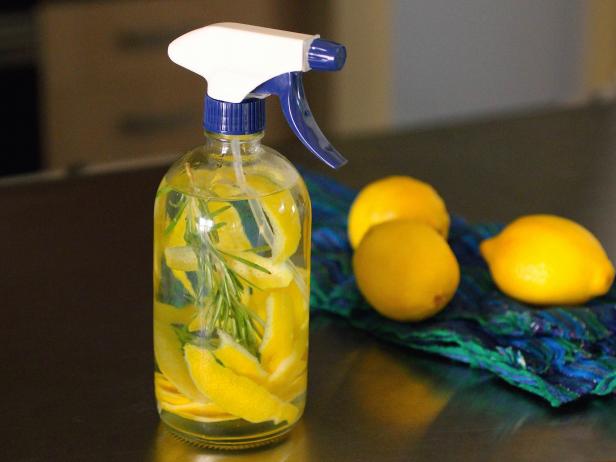
Mick Telkamp
Any Other Important Things to Keep in Mind When Mopping With Vinegar?
Never combine vinegar with bleach. The resulting fumes are toxic and can even be deadly. Vinegar + Water is the safest combo for cleaning.
If you’re facing a tough spot while you mop, sprinkle a little bit of dry baking soda onto the area and scrub at it by hand. Undiluted vinegar will have some reactions to the baking soda, though not enough to cause an issue.
Never add vinegar to your steam mop. The mechanisms that process the water and treat the steam are intended for pure water and nothing more. Vinegar can break the internal components.
Avoid the use of vinegar on laminate flooring, as the acidic properties can dull the finish over time. (Furthermore, mopping laminate even with water can damage the flooring. Dry mopping and spot cleaning laminate is the best route.)






